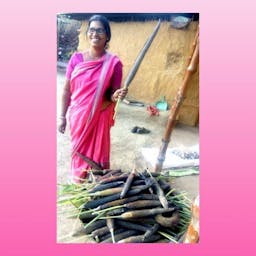Planning for Women's Issues
Jan 21, 2015
Story
The Planning Commission of India has launched a website (http://www.12thplan.gov.in/) to invite contributions from the general public for preparing the approach paper for the forthcoming 12th Five Year Plan ( 2012-2017). Many topics have been put up for discussion. However, two crucial issues with regard to women were not there. I have now submitted them and let us see whether the moderators accept them for discussion. Meanwhile I am flagging these two issues here.
The first is with regard to the overall reproductive and sexual health of women. The government health system is focused at the moment only on safe motherhood and is not providing adequate gynaecological care and sexual health services to the women. Most of the women do not receive free services in this regard. All attention is given only to ante-natal and post-natal care. However, women are not only bearers of children and they suffer from many other reproductive health problems like white discharge, hazy sight, dizziness, itching in vagina, waist pain, lover abdomen pain, burning in urine, continuous cough, prolapse of uterus, irregular menstruation, pain during menstruation and uncontrolled urination, which are all related to reproductive tract infections (RTI) of one kind or other. There is no open discussion in society or even between women regarding these. The Auxiliary nurse midwives (ANM) too are not trained to advise women about these problems. Even if some women pick up the courage to speak about these problems to a doctor, mostly there are no gynaecologists posted in Primary Health Centres (PHC) and Community Health Centres (CHC). Women suffer in silence without realising the seriousness of these problems. Ultimately when things become life threatening poor women are advised to remove their uterus which is called the “burra operation” by them as opposed to sterilisation which is known as the “chhota operation”. They pay Rupees 10 to 15 thousand for this but they don’t get relief even after this because the problem continues to lie in the reproductive tract. They live their painful lives spending time and energy for the care of the family and also in doing earning work either as agriculturists or as labourers in cities.
The major cause of RTIs is that women use just one cloth during their menstrual period and when they are working they wear it for the whole day and can’t wash it. They come back from their work in the evening or night and then secretly wash the cloth in dim light and dry it covered with another cloth in the shade. There is no space in their houses and also there is a taboo against drying the cloth in the sun. This data has come from my research in slums of Indore. Even though the government is now thinking about this problem and there are moves afoot to provide free sanitary napkins to poor women this needs a lot of thinking. Use of sanitary napkins requires a change in mindset and also the wearing of panties. There is the associated problem of disposal of the napkins. Moreover, even if napkins are to be distributed then those produced through Self Help Groups of Women using the new napkin making machine developed in South India should be used instead of purchasing them from Multinational Corporations. Thus, whether it is overall reproductive health or menstrual hygiene there is a serious need for awareness work both among women and men to break the stranglehold of patriarchal taboos. This has to be complemented with the provision of adequate laboratory testing and gynaecological care at the PHCs and CHCs nearest to the poor women.
The second issue that oppresses women is the undervaluation of their home care work. This work is crucial for the continuance of the human race but since it is done within the home and does not come into the market it is not valued. And so this tremendous contribution to the economy is not accounted for at all. Often these days due to the increasing poverty women have to work outside also in addition to their domestic care work. Thus, they have to bear a double burden. Since there is no way in which poor families can get outside help for this care work as is done by more well to do families, the only way in which the women’s double burden can be relieved is that men also take responsibility for some of the family care work. Unfortunately once again there is a strong taboo against men doing care work and such men are considered to be weak by a highly patriarchal society. In recent times many economists have valued the work done by women in the home on the basis of the time spent on it. There is a need for the value of the family care work of women to be recognised and publicised so that men can be encouraged to take on this work as well and reduce the double burden on the women.
The common thread through both these problems is that of patriarchal norms which prevent women from discussing their reproductive health problems and seeking solutions for them and which also prevent men from doing family care work and reducing the burden of women. This requires a massive Information, Education and Communication (IEC) campaign involving both print and electronic media and also general word of mouth.




